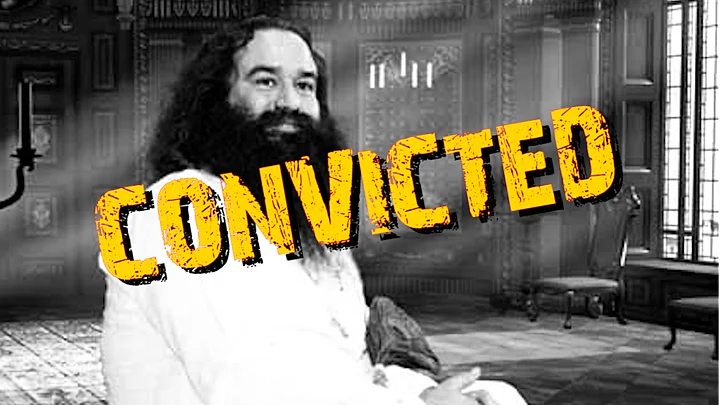In 2016, only one in four rape cases in India ended in conviction – the lowest since 2012 – according to national crime data.
India’s conviction rate for rape, at 25.5 percent, remains low compared to all cognisable crimes – those that do not require a magistrate’s permission to investigate – under the Indian Penal Code (46.9 percent in 2015).
As a special Central Bureau of Investigation (CBI) court in Panchkula, Haryana, sentenced Gurmeet Ram Rahim Singh to 20 years in jail, 15 years after the case was registered, we take a look at India’s record in disposing rape cases.
Nagaland (72.7 percent) and Mizoram (70.6 percent) had the best conviction rates in 2015 – the year for which the latest data was available – while Jammu and Kashmir (7 percent) and Gujarat (10.1 percent) had the worst.
As many as 278,886 rape cases have been reported in India over the last 10 years under Section 376 of the Indian Penal Code.
The conviction rate for rape in Haryana was 24.7 percent, lowest in a decade after 2011 (23.4 percent).
“Declining conviction rate in rape cases ordinarily means lesser number of registered cases could be proved in court, and this gives rise to the suspicion that maybe false cases are also being registered,” Anant Kumar Asthana, a Delhi-based activist and lawyer had told IndiaSpend, in this report on 8 July 2017.
But, it could also mean that police is not able to do a thorough investigation, or that victims are not getting quality legal representation during trial. Whatever may be the reason, declining conviction causes concern and must be examined for possible reasons.Asthana
“Stringent implementation of laws and strict policing will help, but the real change will come when abusers and rapists are consistently convicted for their crimes, survivors are not doubted, judged or shamed,” said Preethi Pinto, Program Coordinator on Prevention of Violence against Women and Children at Mumbai-based SNEHA (Society for Nutrition, Education and Health Action), IndiaSpend reported on 8 July 2017.
Singh, the leader of socio-spiritual organisation Dera Sacha Sauda, was convicted of rape in a 2002 case by the CBI special trial court in Panchkula, Haryana, on 25 August 2017. The verdict came after nearly 200 hearings, spread over 10 years and numerous stay orders of higher courts, according to this Business Standard report dated 25 August 2017.
Singh’s conviction sparked widespread violence and arson in Haryana and adjoining areas, killing over 30 people and leaving more than 250 injured.
The Punjab and Haryana High Court pulled up the Haryana government for not imposing prohibitory orders under Section 144 properly and preventing the huge gathering of Dera followers in Panchkula.
The Supreme Court on 28 August 2017, questioned the Gujarat government for the slow trial in the case of rape against Asaram Bapu, a self-styled godman, who has been in a Rajasthan jail since 31 August 2013, pending trial for the alleged rape of a 16-year-old schoolgirl in August 2013.
The conviction rate for rape in Gujarat, where Asaram’s trial is underway, was 10.1% in 2015, against the national average of 29.4% in the same year.
(Mallapur is an analyst with IndiaSpend. This article has been published in an arrangement with IndiaSpend.)
(#TalkingStalking: Have you ever been stalked? Share your experience with The Quint and inspire others to shatter the silence surrounding stalking. Send your stories to editor@thequint.com or WhatsApp @ +919999008335.)
(At The Quint, we question everything. Play an active role in shaping our journalism by becoming a member today.)
